Call Center
Call Centres Sector
South African call centre companies can drive down costs by locating operations in
Lesotho, which enjoys good international connectivity

Introduction
It has first class international connectivity, a pool of English-speaking graduates, and proximity to South Africa which simplifies setting up and managing business operations there. Costs are highly competitive: LSL* 50 per call centre seat per hour. The best location for call centres is Maseru, home to 10% of Lesotho’s population.

Strengths &
Opportunities
This compares favourably with the Philippines
at LSL 242 and Eastern Europe at LSL 167.
Lesotho’s graduates speak English and are
easily trained for call centre operations. Lesotho has a tradition of relatively harmonious labour relations. Lesotho’s geographical location in the same time zone as South Africa and Western Europe is a further operational advantage
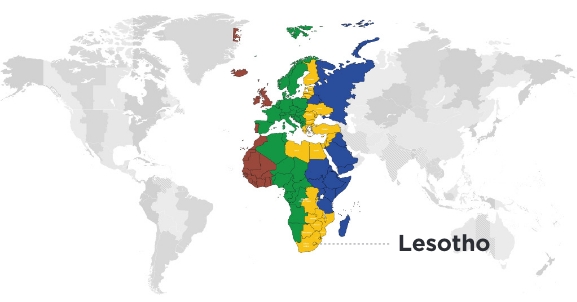
Call centres will enjoy a reduce level of corporate income tax of 10%, with a 0% tax on dividends.
The project aligns with SDGs 8, 9 and 10.
Project
Assumptions
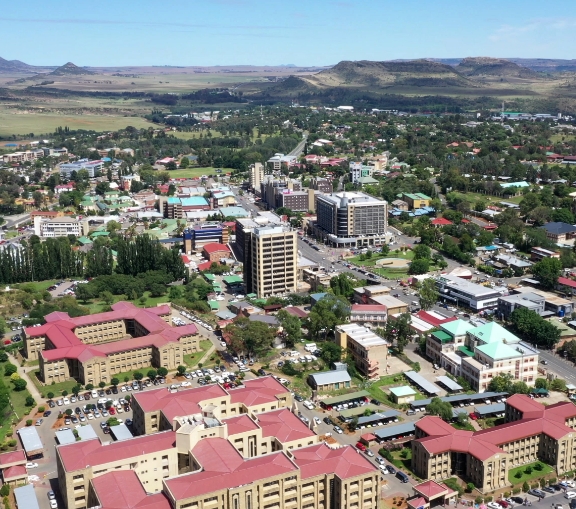
Markets
Lesotho’s membership of SADC and SACU allows Lesotho to export deciduous fruit to SADC countries without being subject to quotas or tariffs. The estimated market size is 300 million consumers. Lesotho’s geographical position and good road connections with South Africa permit short lead times and reasonable costs to transport produce from the Maseru area to Johannesburg, Cape Town and Durban (the port of dispatch for exports by sea). Lesotho has already trialled the export of fruit to South Africa to supply supermarket chains, with encouraging results.

A wide range of cereal products are AGOA-eligible, so they can be exported to the USA provided that US health standards are met. Cereal products may also be exported to the EU under the EU/SADC EPA, again subject to compliance with relevant standards.
Lesotho still imports most of its cereals from South Africa and the size of the local market is relatively small. Investing in processing facilities is therefore primarily about serving international markets and creating high quality (preferably organic) products that comply with international health standards and contribute towards a distinctive, quality Lesotho brand.
The cereal sector is mostly dominated by subsistence farmers. There is an opportunity for processors to incentivise the farmers to expand production and improve quality through adopting new farming technologies, including better varieties of seeds.
Government agricultural extension services
also have a role to play in upskilling local farmers.
Potential investors are advised to perform their own due diligence about the investment climate in Lesotho. The Lesotho National Development Corporation stands ready to help.

Fiscal Incentives
Corporate tax: 10% on profits from sales of agricultural goods produced in Lesotho Training: Cost of Lesotho citizens allowable at 125% for tax purposes
Withholding tax:
- 10% on service contracts with non-residents
- 25% on dividends distributed from income by resident companies to non-resident shareholders
- No withholding tax on dividends distributed to Lesotho residents
VAT:
- 15% on goods and services sold in Lesotho
- 0% on direct exports
Risk guarantees:
- Partial credit guarantee through the LNDC
- Tailor-made, agriculture-specific loan through the Post Bank of Lesotho
Specific incentives for the horticulture sector:
- Access to a Sesotho language technical training manual for local workers in on-farm and crop management
- Access to demonstration and crop pilot plots
- Facilitation support to identify and mobilize village level farmer engagement
- Access to technical data on historical crop performance
Support from the LNDC includes:
- Serviced industrial and commercial sites at competitive rentals
- Provision of industrial and commercial buildings at competitive rentals
- Financial assistance on a selective basis
- Investment facilitation services
- Assistance with permits and licenses
- Assistance with company registration
- Assistance with industrial relations issues
- Appraisal of investment projects
- Assistance with preparation of project briefs for the Environment Impact Assessment (EIA) Certification
The project would align with SDGs 1, 2, 8, 9, 10 and 15.
Financial Analysis
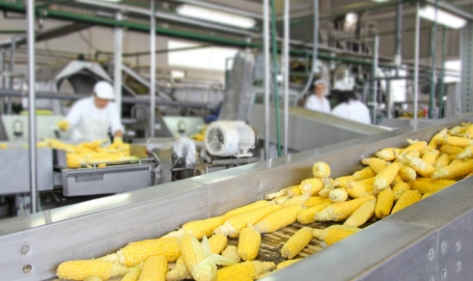
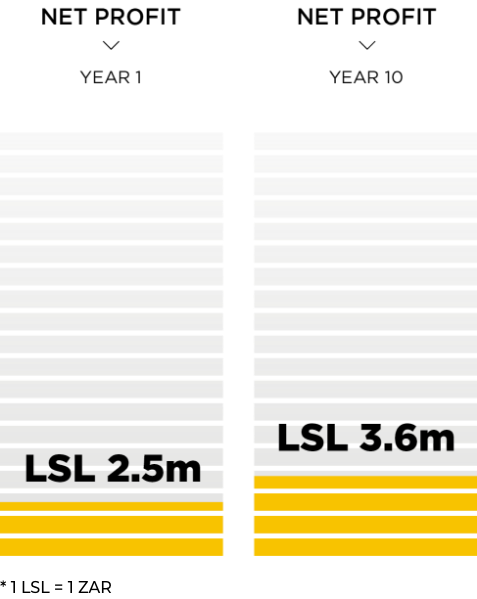
Financial Analysis
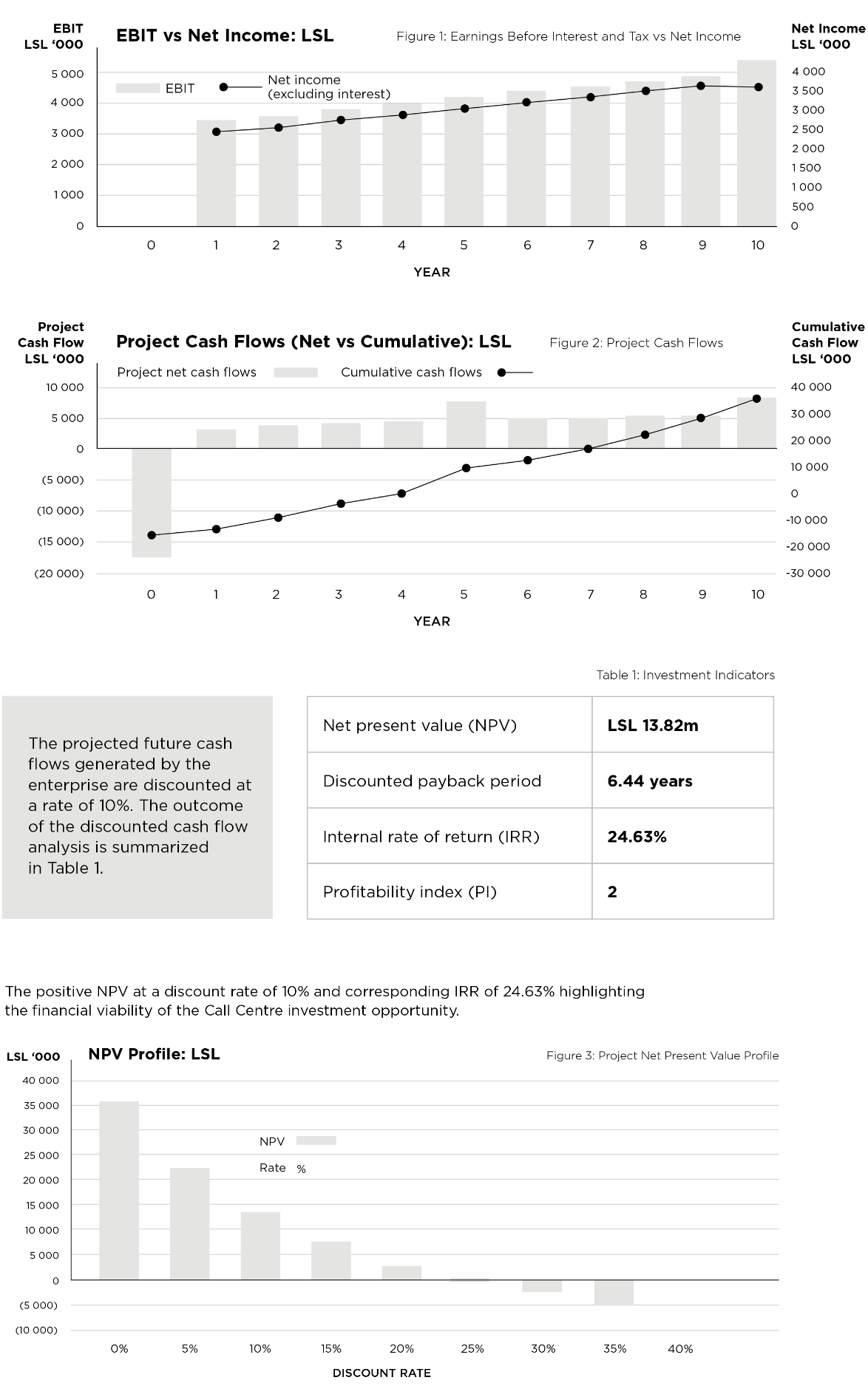
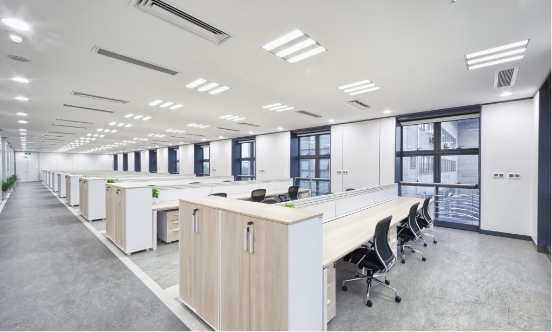
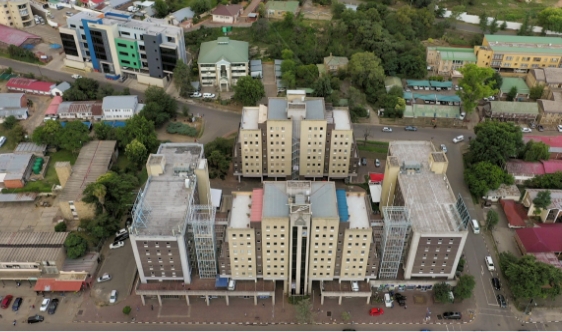
For more information please contact:
MS. PHOMOTSO MAJODINA
General Manager (a.i)
Investment and Trade Promotion Unit
Lesotho National Development Corporation
Email: [email protected]
MS. MABATAUNG TSINYANE
Manager: Investment Promotion, Manufacturing
Lesotho National Development Corporation
Email: [email protected]
MS. MAKOPANO MOSAKENG
Officer: Investment Promotion, Manufacturing
Lesotho National Development Corporation
Email: [email protected]
MR. TSEPISO MOFOLO
Officer: Investment Promotion, Manufacturing
Lesotho National Development Corporation
Email: [email protected]
